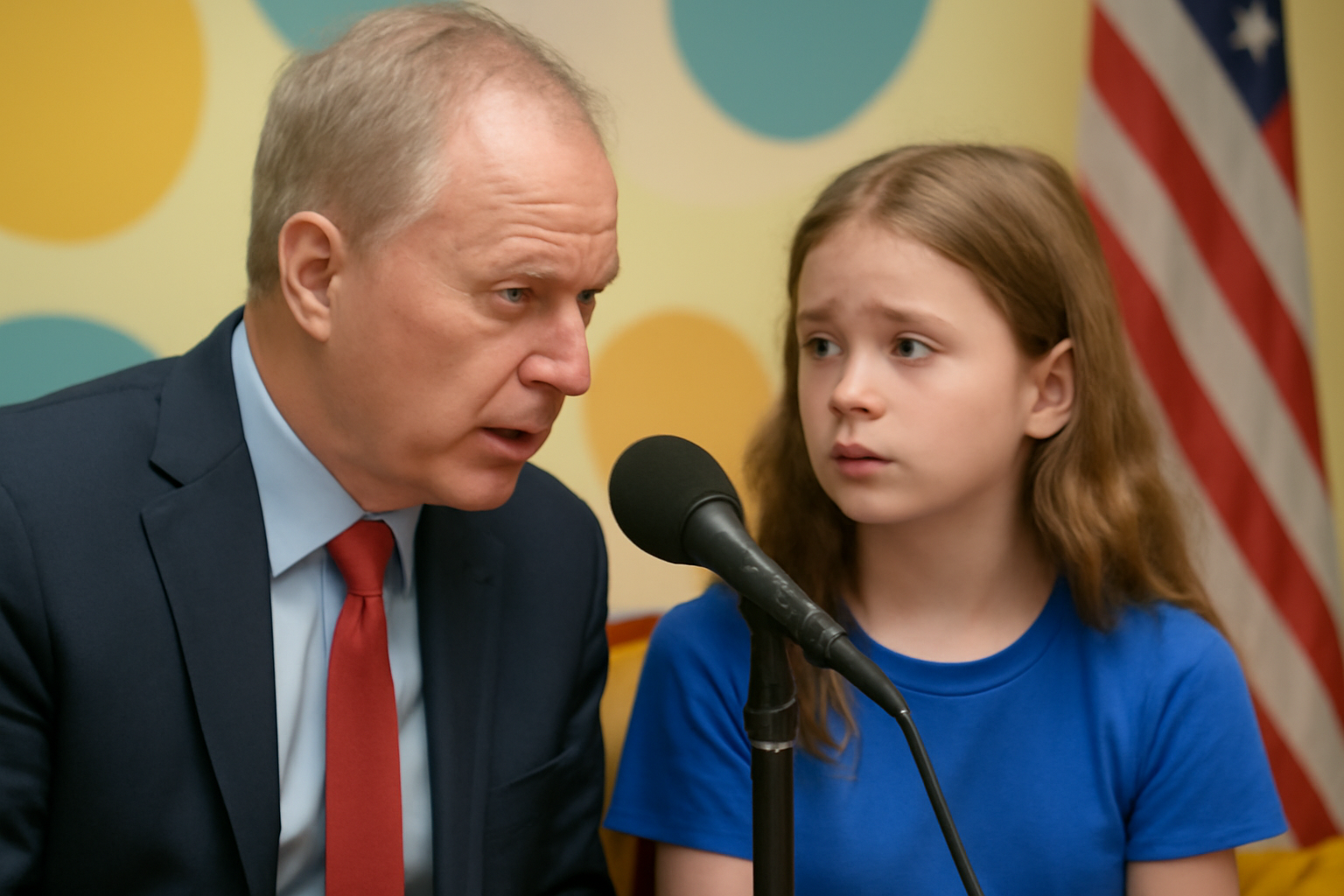
A recent incident at a school event in Pennsylvania has sparked a heated debate over the appropriateness of questions asked by public officials to children, and has highlighted broader issues around book bans and educational content. The incident involved a Republican lawmaker, State Senator David Argall, who found himself in hot water after posing an inappropriate question to a 12-year-old girl during a Civics Bee competition. This has led to public outcry and raised questions about the responsibilities of elected officials in educational settings.
The event took place at Pennsylvania State Schuylkill University, where sixth grader Mary Anderson participated in a Civics Bee, a competition designed to engage young students in discussions about civics and public policy. Mary delivered a presentation on the topic of book bans, an issue that has been gaining traction in recent years as schools and libraries grapple with questions about age-appropriate content.
A Question Out of Line
While serving as a judge for the competition, Senator Argall posed a question to Mary that stunned the audience. “Do you think we should allow pornographic magazines in kindergarten classrooms?” he asked, eliciting a collective gasp from those present. The question left Mary confused and led to a moment of tension in the room as the young student tried to process what was being asked.
Erin Anderson, Mary's mother, was present at the event and later recounted her shock and disappointment. According to her, Argall continued to press the issue after Mary needed clarification on the term "pornography." Argall attempted to explain what he meant by referring to "naked pictures of people in books and magazines," despite the inappropriate nature of the discussion for such a young audience.
Public Outcry and Apology
Following the event, Erin Anderson approached Argall to express her disapproval. She recounted that the senator defended his question, equating book bans directly with issues of pornography—a connection she found deeply flawed. The incident quickly gained traction online, with many criticizing the senator's lack of judgment and the inappropriateness of the question.
The controversy generated considerable media attention, with headlines calling out the senator's behavior. Even outlets not typically aligned against members of his party criticized his actions, labeling them as "wildly inappropriate." The backlash compelled Argall to issue a formal apology the following day.
In his statement, Argall acknowledged that his question was not suitable for the setting and apologized to Mary, her family, and the other participants. He commended the students for their presentations and acknowledged his error in judgment. However, he also attempted to justify his actions by linking them to ongoing legislative discussions about the appropriateness of certain materials for children.
Response from the Community
For Erin Anderson and others in the community, the senator's apology was only partially satisfactory. "If a public official cannot exercise good judgment and basic appropriateness when speaking to children, especially in a civic education setting, then it raises serious concerns about their ability to serve," Anderson remarked.
This incident has brought renewed attention to the ongoing debates about educational content and the role of lawmakers in influencing these discussions. It underscores the importance of ensuring that public officials understand the impact of their words, particularly when engaging with young audiences.
The debate over book bans and age-appropriate content is far from settled, and incidents like this one only add complexity to the dialogue. As communities continue to navigate these challenges, the expectation is that elected officials will approach these topics with care and consideration, especially when they involve children.
Meanwhile, Mary's experience at the Civics Bee has become a pivotal moment in this broader conversation, highlighting the need for sensitivity and awareness in educational and civic discussions. As the story continues to unfold, it serves as a reminder of the importance of thoughtful engagement with youth on complex issues.
Stay informed on the latest developments by subscribing to our newsletter and joining the conversation on how we can create more inclusive and appropriate educational environments for all students.
Related Posts
"Wicked": Unveiling Fiyero's Destiny - Hidden Clues You May Have Overlooked
Have you ever been swept away by a story that leaves you unraveling clues long after it ends? That's exactly what "Wicked" does with its enchanting narrative, unforgettable songs, and complex characters. Among them, Fiyero stands out as a charming prince whose surprising metamorphosis by curtain fall makes us wonder: were there hints about his fate scattered throughout? Let's dig deep and see if " [...]
Triumphant Trans Woman Wins Legal Battle and Inspires Others to Stand Up for Their Rights
Breaking new ground: a landmark victory in transgender rights After battling in courtrooms and enduring endless challenges, Diana Portillo, a transgender woman, has secured a monumental victory in her decade-long fight against workplace discrimination. The result? Nearly $1 million awarded in a historic settlement. But this isn't just a win on paper—it represents a powerful precedent in combati [...]
Pride Month in Latin America: Protests and Demands for Equality
**Celebrating Pride and advocating LGBTQ+ rights in Latin America** Pride Month in Latin America was a lively mix where celebration met activism. Communities united, not just throwing a party but making a stand—demanding equality and pushing governments toward better protection and rights recognition. Throughout Latin America, pride events erupted in marches and cultural displays, each with a c [...]